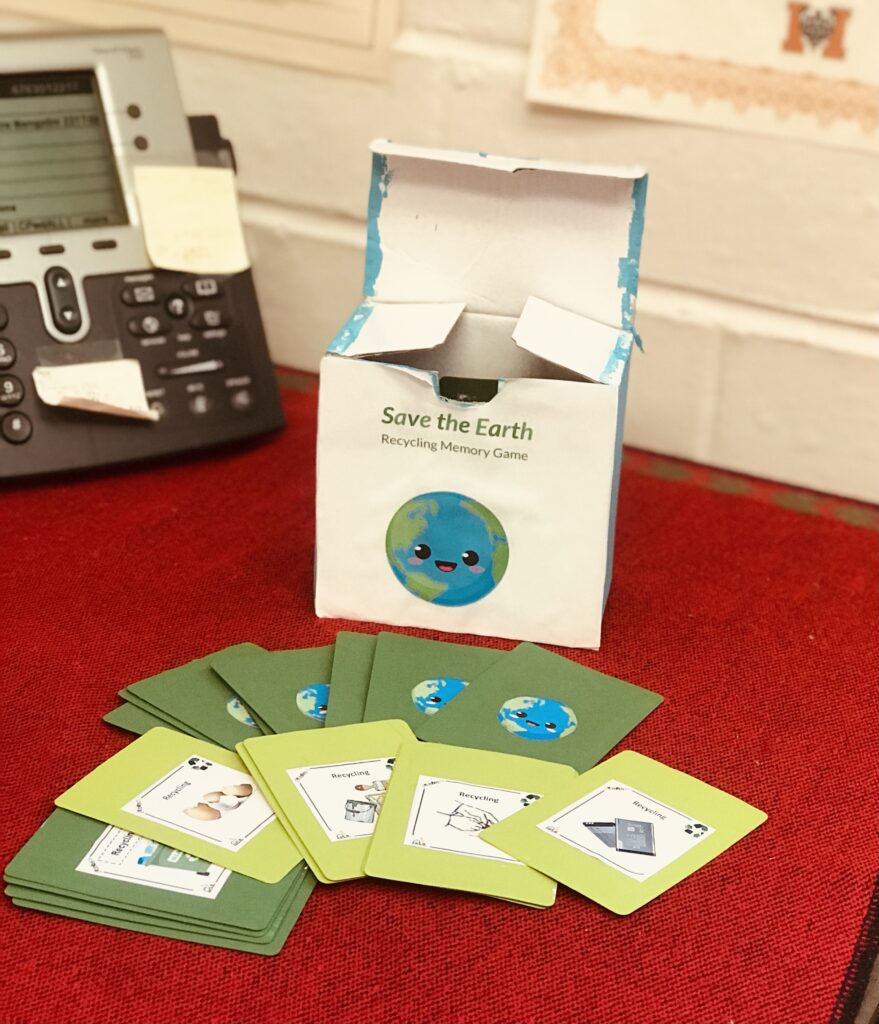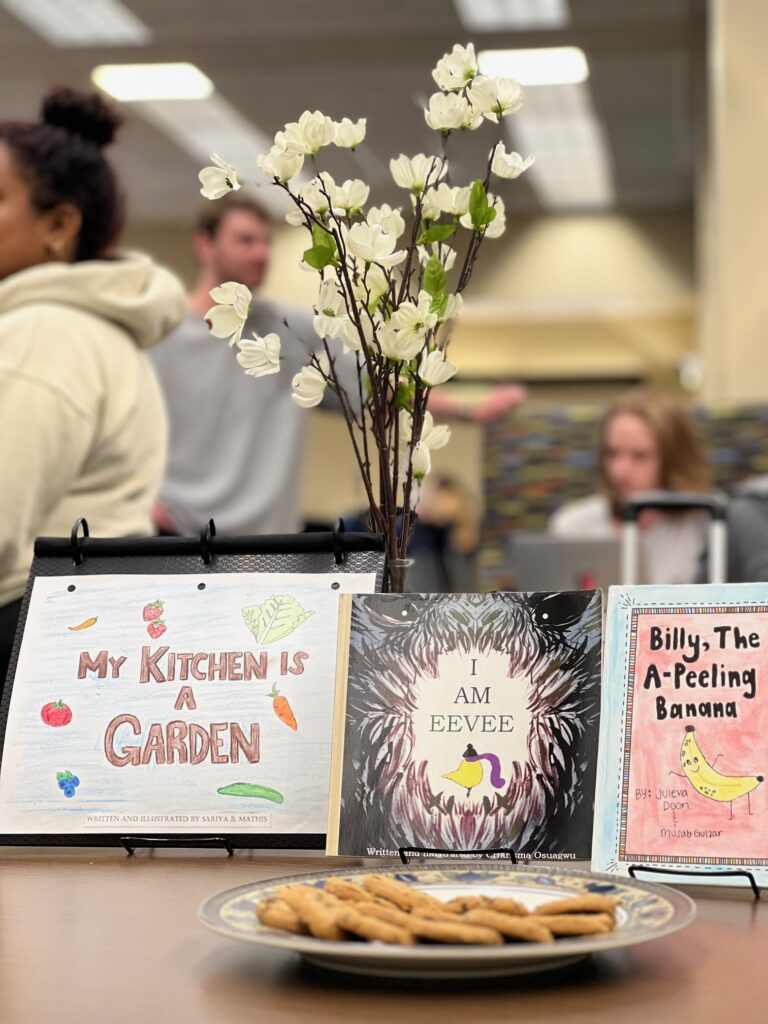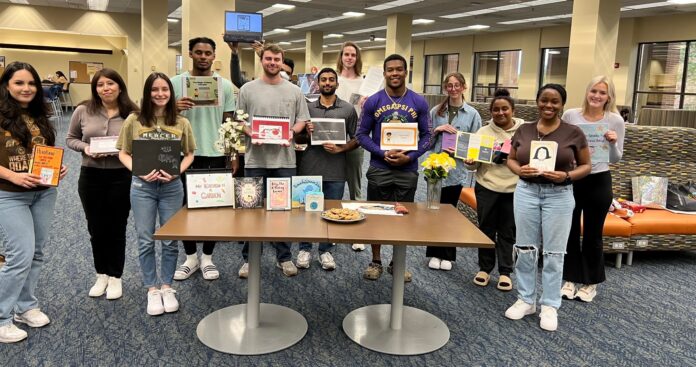
Since 2019, Mercer University students have been getting in touch with their inner child during a course themed around children’s books. Dr. Clara Mengolini, associate professor of foreign languages and literatures, challenges students to delve into the meanings and motivations of books from around the world during her Integrated Curriculum 301: Engaging the World course.
The theme of the class, taught every spring, is “Politics and Ideology in World Children’s Literature.” Dr. Mengolini’s inspiration for the course goes back to her Ph.D. studies at Vanderbilt University, where a children’s literature course sparked in her a fascination with picture books.
She set a goal to one day write her own children’s book, and she conducted lengthy research on children’s literature for her dissertation before opting to focus on another subject. A few years later, Dr. Mengolini used that research as the foundation to create this INT class at Mercer.
The course explores the influence children’s literature has had on concepts of citizenship and ideology throughout history. Students read about 50 picture books during the semester and also examine a few comics, graphic novels, cartoons and films. They see themes of nationalism, immigration, dictatorship, capitalism, socialism, poverty, feminism and environmentalism conveyed in works from the United States, Russia, China, Korea, Japan, England, Australia, Cuba, Argentina and Chile.
“My first semester teaching INT, I was so nervous because actually this was the first class that I created myself,” she said. “And it went great. Every picture book, every comic or cartoon, inspired a different debate in class. That’s what makes professors really happy, to see students engaged, especially if it is a class that came from my imagination.”
Dr. Mengolini said she chose materials that had an engaging story, were eye-catching and would prompt discussion. For instance, the nationalist ideas of Argentinian leader Juan Peron are conveyed in the 1953 book Aleli; a young girl learns about Nazis and concentration camps in the 1985 book Rose Blanche; 2012’s A is for Activist provides an alphabet of socialist ideas; and What You Can Make with Freedom, written by Dr. Mengolini and Mercer economics professor Dr. Antonio Saravia in 2018, discusses capitalism. The 1936 book The Story of Ferdinand, about a peaceful bull, was banned by countries that interpreted it as going against the ideas of Spanish ruler Francisco Franco.
“When you are in front of the class, you want a student to wonder, to leave a class thinking, ‘Wow, I never thought about that,’ and to have that curiosity,” she said. “When there’s debate, you know you did a good job. You can teach so many things, but you want them to be curious.”
Journalism major Alfred Wooten, a rising senior who took the class this spring, found the children’s books themed around self-love to be especially powerful and said they hit home the most for him. In an age of social media, it’s “easy to lose sight of the love for yourself. We get so caught up in comparing ourselves,” he said.
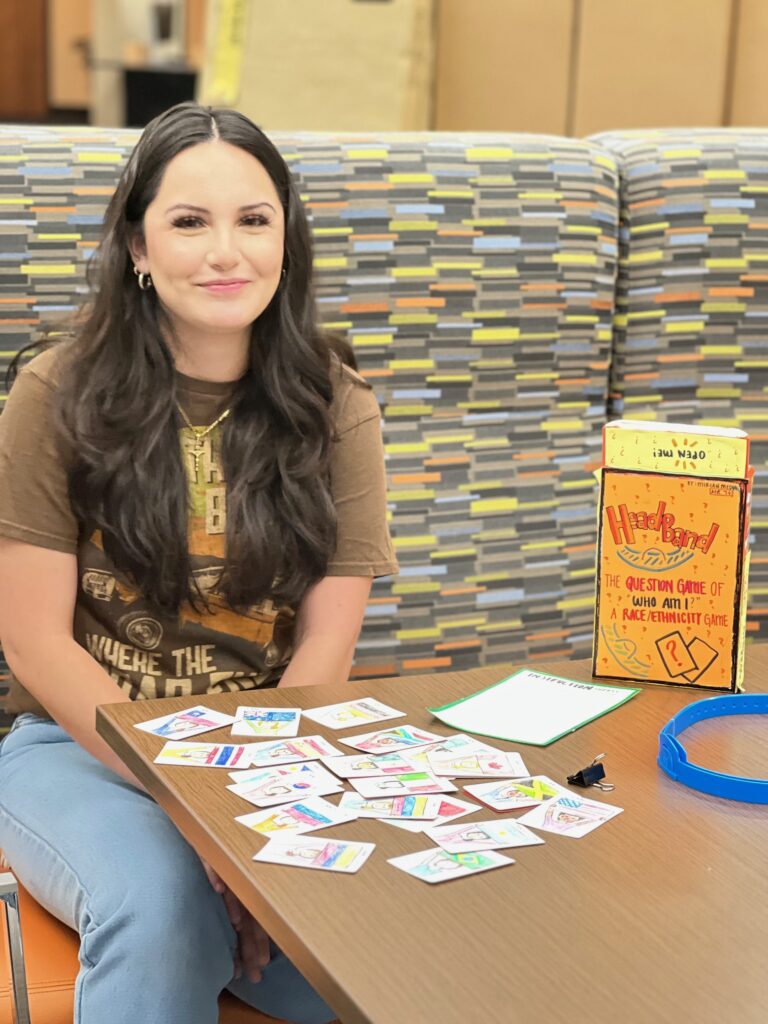
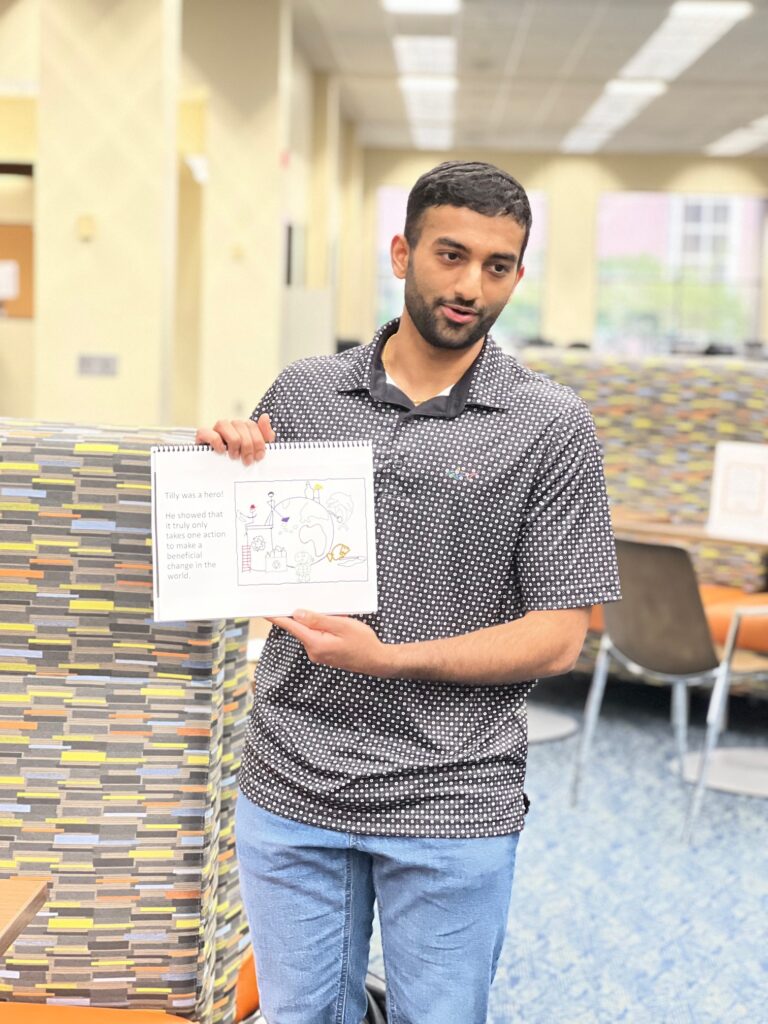
Rising junior Mirian Medina, a psychology and criminal justice double major, said it was interesting to read children’s books as an adult and analyze their surface and deeper meanings. She was shocked by some of the messages within the books.
“I liked the discussion that we did during the class. People would share their own personal stories,” Medina said. “It was a really great class. I would definitely recommend it to any of my classmates.”
To encourage playfulness and creativity, Dr. Mengolini ends each class with an interactive activity. Students have sung the names of their classmates as an ode to the 2020 book Your Name is a Song; created their own Dr. Seuss characters; and pretended to be authors being interviewed on TV. The students have a lot of fun with these activities and really get into them, Dr. Mengolini said.
“What I really love about this class is the creativity component. One of the most fun parts of being a child is that children play. They wake up and play and play all day. It’s very dreamy. There is a little part of that (playfulness) that never dies. We have a child inside. This class, since the topic is children’s books and movies, gives me the freedom to play a lot.”
For their final project for the class, students created a children’s book, game or toy addressing a controversial or difficult topic. Projects have addressed the environment, diversity and inclusion, bullying, and nationalities, among other subjects.
“They really try hard, and I love it,” Dr. Mengolini said. “It’s a challenging project because they are not artists; they are not writers. But they all put a lot of effort into it. I’m really proud. I’m always happy with these projects.”
Medina created her own version of the popular “Heads Up!” game that tests knowledge of nationalities and flags. Wooten touched on racism and bullying in the book he created, titled JoJo’s New School.
“It’s based off of a similar situation that happened to me when I was a kid, and I put it into book form as a learning situation for young kids,” Wooten said. “The whole point of the book was to help young kids learn how to be different and also to be kind to each other no matter how they look.”
